
Comala, Colima: 7 Attractions to Add to Your Itinerary
Comala is a Magical Town in the state of Colima, in the central-western region of the country.
The name Comala became known nationally and internationally in the late 1950s through a Mexican literary work, and in 2002 the small town was incorporated into the system of Magical Towns.
The town is the head of the municipality of the same name and it’s part of the Mexican “coffee belt”.
Comala is a tropical town shaded by almond and palm trees, with an average temperature of 25° C, with minor inter-monthly variations.
In the hottest months, from April to September, temperatures hover around 28° C, while in the cooler period, it is about 22° C from November to February.
Rainfall is moderate, about 1050 mm per year, between June and October.
Where is Comala Colima?
Colima, the state capital, is only 10 km from Comala, traveling south on Colima Highway 175.
Manzanillo, the important coastal town of the state, is 115 km from Comala, in the direction of Colima.
Regarding the capitals of the bordering states, Guadalajara is 210 km north of Comala, while the distance from Morelia is almost 500 km due to the geographic disposition of the roads. The trip by road from Mexico City is 730 km.
In 1820 Comala had its first monarchical city council and in 1857 the first republican one.
Comala, the “place of comales,” indicates that the town was formerly known as the center of comal manufacturing, the well-known piece of clay used in pre-Hispanic kitchens.
Prehistoric vestiges of life were found in Comala 3,000 years ago.
When the Spanish conquistadors arrived, Olmecs, Nahuatl, Toltecs, Chichimecs, and Tarascans, who were the area’s inhabitants, passed through the site.
Best things to do in Comala Colima, Mexico
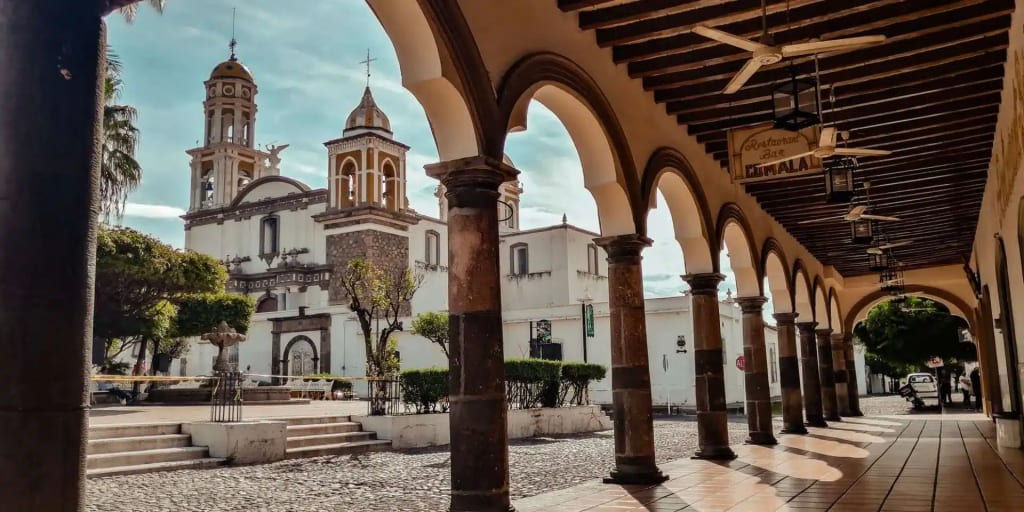
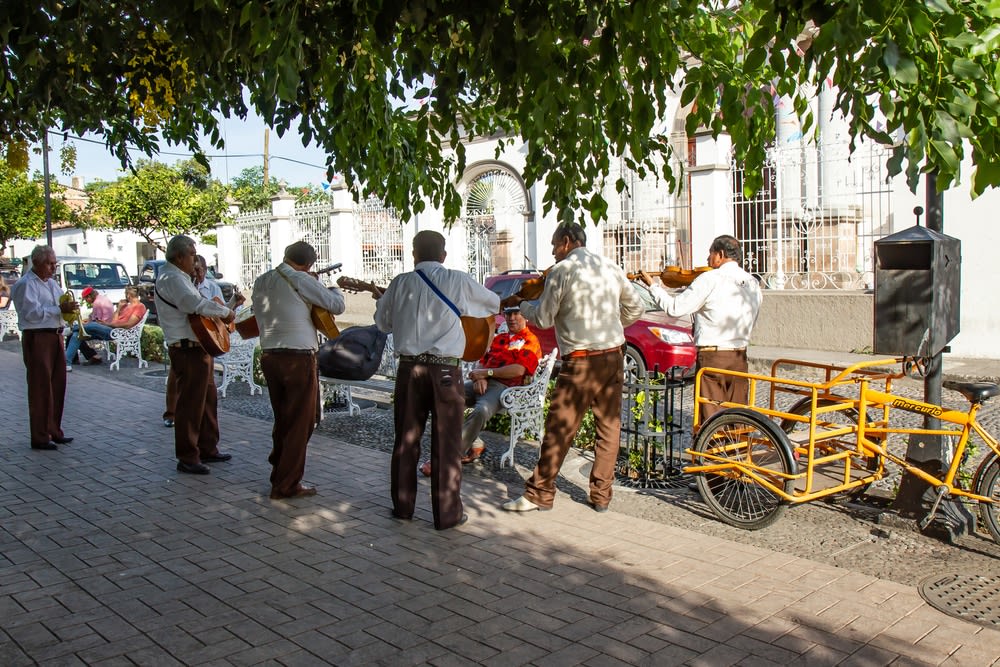
This Magical Town became known for the novel Pedro Páramo and the bronze statue of the writer Juan Rulfo sitting on a bench in the town’s Central Garden, reading a story to a child.
It is one of the most visited places for tourists to take pictures.
Comala is also the town of Los Portales, where locals and visitors alike engage in the town’s favorite pastime: “botanear” (eating snacks).
There are also some interesting architectural attractions and several sites of tourist interest nearby.
Learn about Pedro Paramo, a novel by Juan Rulfo
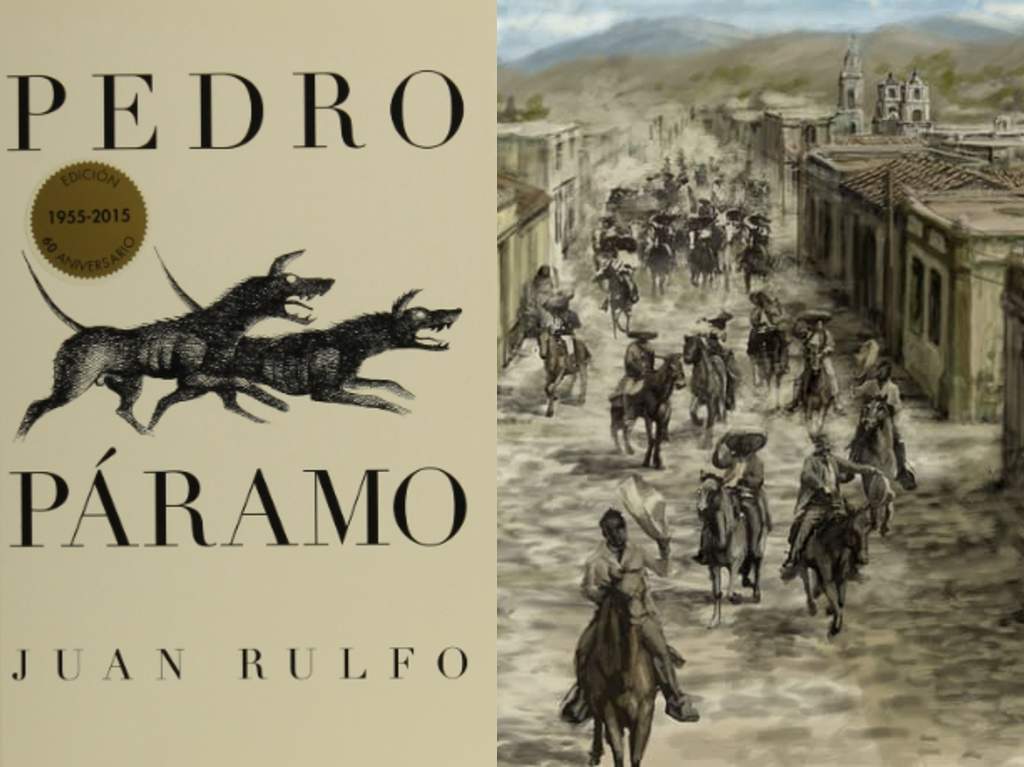
The ghost of Pedro Páramo still haunts Comala Colima, even if only in the imagination of locals and visitors who know the character.
“I came to Comala because they told me my father, Pedro Páramo, lived here.”
The opening paragraph of Juan Rulfo’s novel Pedro Páramo has captured the imagination of millions of readers.
It has made it one of the most widely read stories in Hispanic literature.
Pedro Páramo, a fictional character, placed Comala in the spotlight.
Every visitor who has read Rulfo’s story expects that at any moment, the specter of Pedro Páramo will appear while riding down a dusty, dusty, abandoned street.
Who was Juan Rulfo?
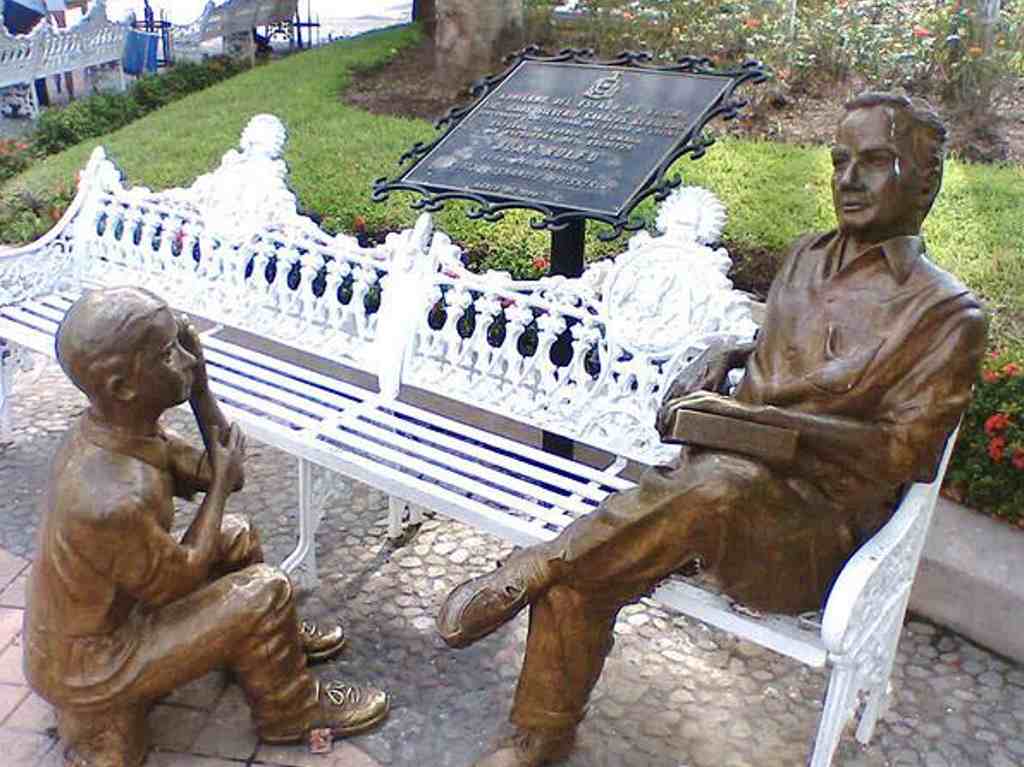
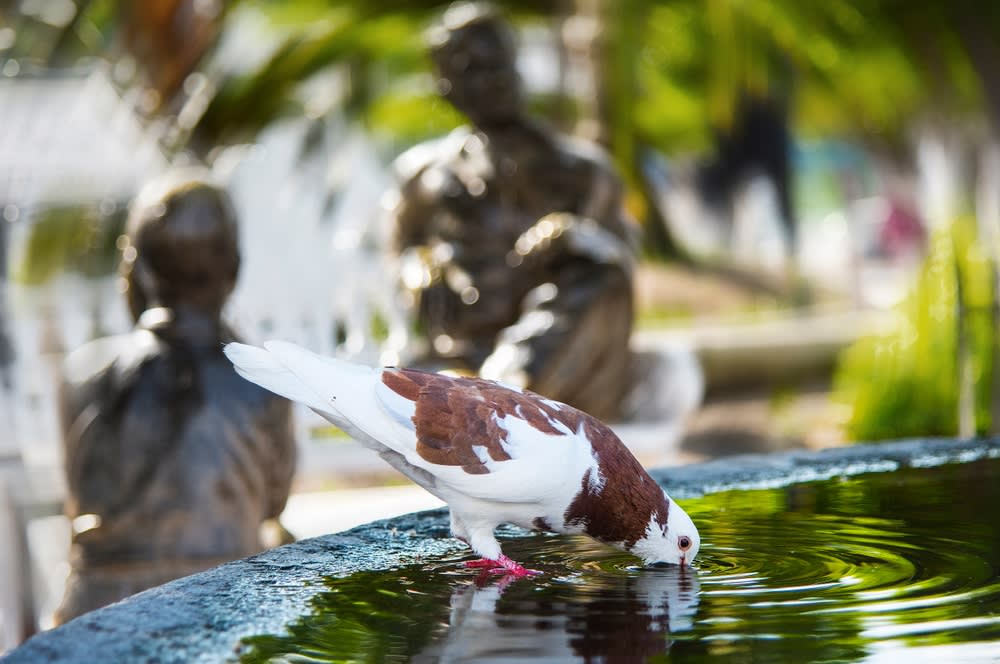
Mr. Rulfo was a Mexican novelist born in Sayula, Jalisco, in 1917 and died in Mexico City in 1986.
He wrote two great works, the short story collection El llano en llamas and the short novel Pedro Páramo.
Perhaps an ideal way to appreciate Rulfo’s work is through an anecdote of the young Gabriel García Márquez.
When his friend Álvaro Mutis gave him Pedro Páramo to read, he told him, “Read that pod, carajo, so that you can learn!”
The future Nobel Prize winner read the novel twice that night and was shocked.
Grab a snack at Los Portales of Comala
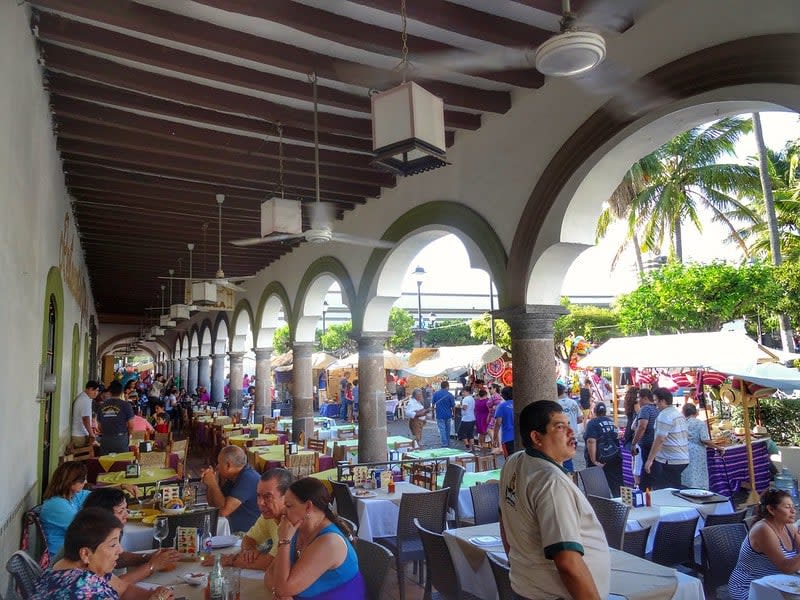
Los Portales are places of characteristic arcaded architecture with arches. People gather in Comala to have breakfast, drinks, and small snacks generally included in the beverage price.
There is live music, and it is not uncommon to see the beautiful sight of a cowboy dismounting from his horse, perhaps a “grandson” of Pedro Paramo who is reluctant to abandon his grandfather’s means of transportation.
Los Portales offers an inexpensive way to eat informally in Comala.
Admire the architectural attractions of Comala Colima
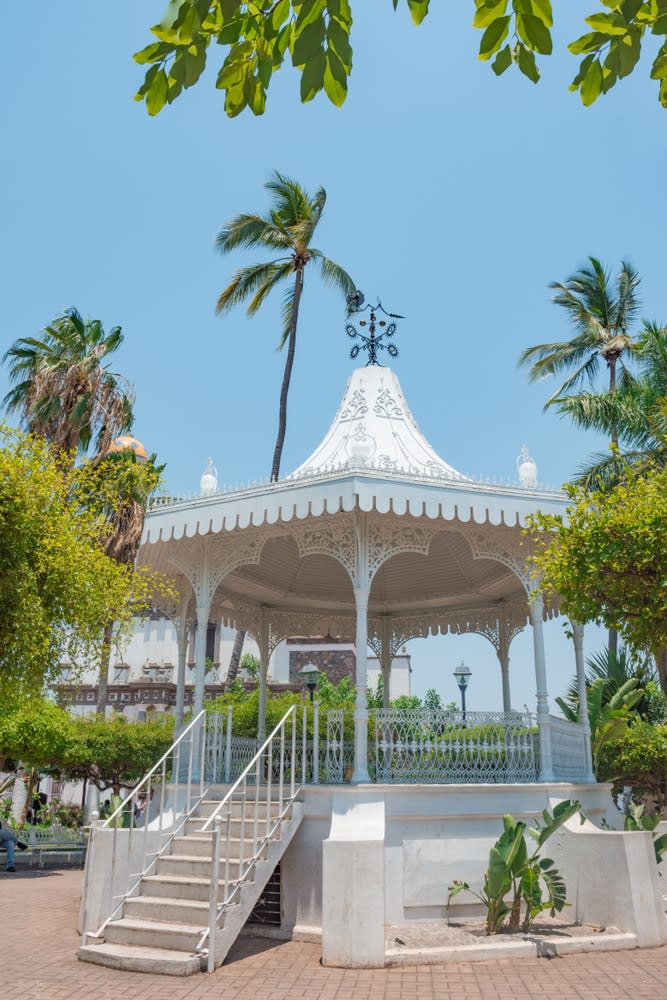
In front of the zócalo (main square), which has a beautiful German kiosk, is the parish church of San Miguel Arcángel, of neoclassical lines, and the Municipal Palace.
You can see the Fire Volcano and the Nevado de Colima from the zocalo.
The gastronomy of Comala stands out for its great variety of antojitos and dishes for snacking, the typical bread of the town, and drinks.
Bread or Picón de Comala leaves a pleasant taste of burnt sugar on the palate and is ideal to accompany the local coffee since the town has a coffee tradition.
The town also prepares a pomegranate, blackberry punch, and a refreshing drink called tejuino, made with corn dough and sweetened with piloncillo.
What are the attractions of the nearest towns?
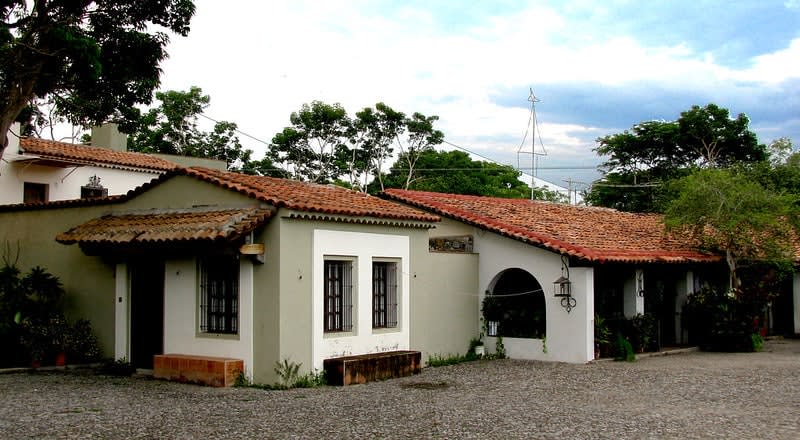
Nogueras, just 2 km from Comala, is a small town once a sugar cane hacienda.
Alejandro Rangel Hidalgo (1923-2000) was a painter and object designer from Colima who lived in Nogueras in a hacienda bought by the University of Colima to install a museum about the artist’s work.
Rangel Hidalgo excelled in blacksmith and wood design, particularly furniture and lampposts, in a style that earned him Rangeliano.
The museum is also an ecological park. Other towns near Comala with attractions of interest are Suchitlán and Colima, the state capital.
Visit Suchitlan Colima, near Comala
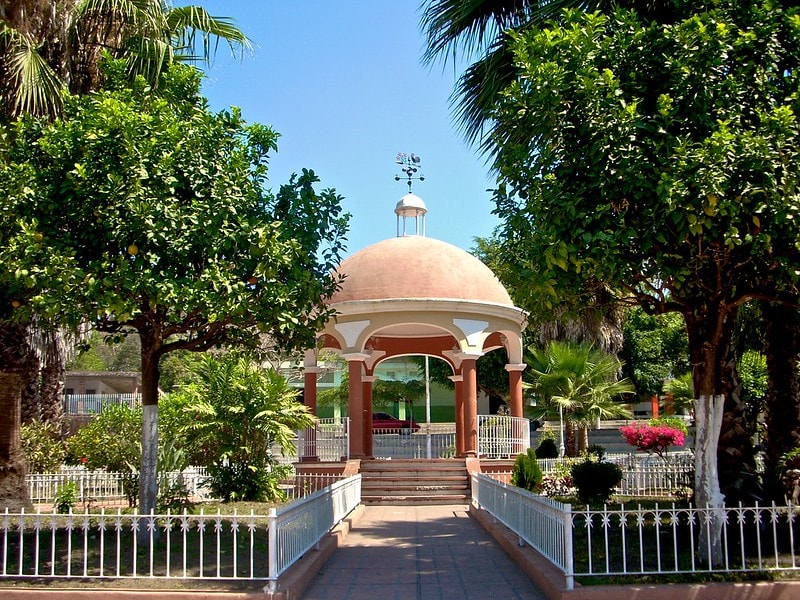
Suchitlan is a picturesque town about 15 minutes from Comala on the road to the Volcán de Fuego.
One of its attractions is its Apache Dances, where the indigenous people dance dressed in colorful feathers to the sound of typical flute music.
Near Suchitlan, there are several lagoons to go boating, picnics, barbecues, and camping.
Laguna Carrizalillos and Laguna La María, located in front of Hacienda San Antonio, are most appropriate for tourism.
Admire the Nevado de Colima
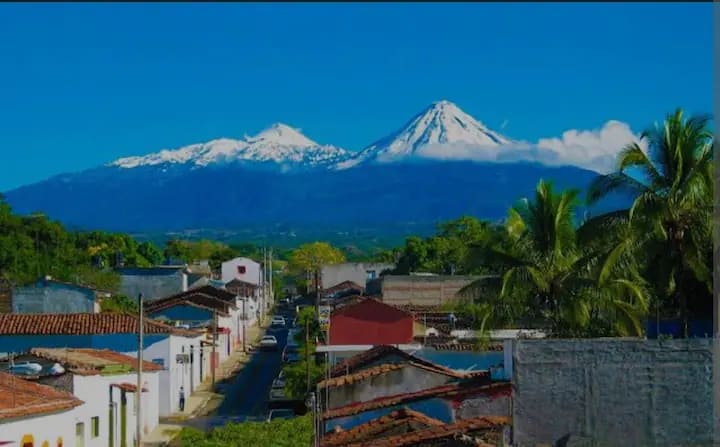
The main custodians of Comala, in the distance, are the Volcán de Fuego and the Nevado de Colima.
Many people who go to Comala are particularly interested in the Volcán de Fuego and approach the awakened giant, especially recently, because of its renewed activity in recent years.
It is even possible that during your visit to Comala, you will take an unexpected photo of an eruption of the Volcán de Fuego in the middle of the night.
Explore Colima City
Comala is so close to Colima that it is easy to see both the town and the state capital in one trip.
On a quick trip to Colima, the must-see sites are the Government Palace, the Cathedral of the Virgin of Guadalupe, the Hidalgo Theater, the María Teresa Pomar University Museum of Popular Arts, and the Regional Museum of History of Colima.
Comala Lodging
Comala effectively uses the hostel concept as a lodging strategy, providing warm and personalized attention to a few clients in its splendidly furnished mansions.
- Hostal La Parroquia, at Hidalgo 287, is praised for its beauty and cleanliness
- Hostal Casa Blanca, at Degollado 75
- Casa Alvarada, at Álvaro Obregón 105 and Hostal El Naranjo, at Melchor Ocampo 39
Other comfortable lodging options in Comala or nearby towns are Reserva La Cofradía, Hacienda de San Antonio, and Concierge Plaza la Villa.
Colima’s hotel offerings are also widely used by visitors to Comala.
Where to eat?
Comaltecos are fond of going out on weekends to eat in the country restaurants in the town’s vicinity.
One such place is El Jacal de San Antonio, a beautiful, cool, and rustic restaurant on the road to Colima with a spectacular view of the volcano.
People here love tortilla soup and juicy steaks. Botaneros (snack lovers) prefer Los Portales in Comala and Suchitlán.
Piccolo Suizo is located at Hidalgo Street if you are in the mood for fondue or other Swiss delicacies.
I hope your visit to Comala Colima will be truly magical and that this guide will be helpful in your tour of this cozy town.